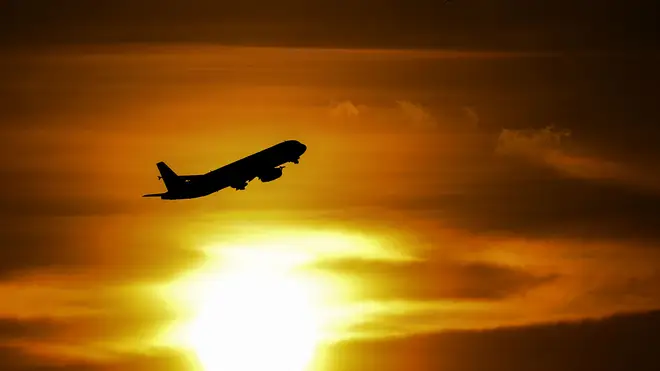
Paul Brand 3pm - 6pm
11 February 2020, 05:30

A plane full of convicted criminals who were due for deportation has taken off for Jamaica, despite a judge ordering the Home Office not to deport many of the detainees.
The plane took off today taking "violent and persistent foreign national offenders" to Jamaica, but some people were taken off the flight over concerns they may not have had access to legal advice.
The Home Office proceeded with the flight as the "court ruling does not apply to all of the foreign national offenders due to be deported "
Asked how many people were on board the flight, Chancellor Sajid Javid told Sky News: "I don't know the exact number but I think it is around 20 - or above 20."
More than 50 people were originally thought to have been due to be deported.
Bella Sankey of Detention Action wrote on Twitter that a number of people "clearly covered" by the Order had been "removed to the airport".
A Home Office spokesperson said: “We make no apology for trying to protect the public from serious, violent and persistent foreign national offenders.
“The court ruling does not apply to all of the foreign national offenders due to be deported and we are therefore proceeding with the flight.”
Chancellor Sajid Javid has defended the Government's decision to go ahead with a deportation flight to Jamaica.
He said: "We will always do what we can to protect the public. These are all foreign national offenders - they have all received custodial sentences of 12 months or more. They are responsible for crimes like manslaughter, rape, dealing in class A drugs.
"And it is absolutely right, when they have served their sentence, that we send them out of the country because they are not British nationals, they are not members of the Windrush generation, they are all foreign national offenders."
On Monday evening the Home Office said they were seeking an urgent review from the Court of Appeal to the ruling that could prevent dozens of convicted criminals from being deported this morning.
Late on Monday evening, a court order was granted over concerns some of the detainees might have been unable to get legal advice due to some of them having poor mobile phone reception or lack of access to a phone.
Government ministers have described those on board as serious and persistent offenders including murderers and rapists.
Kevin Foster MP told the Commons: "There are no British nationals on that flight. And let's be clear, the foreign nationals on that flight have been sentenced to a total of 300 years in prison."
Mr Foster added: “And I think to define the Windrush generation by this particular group of offenders is truly wrong.
“The Windrush generation should be defined by the midwife who delivered hundreds of babies, the person who travelled thousands of miles to work hard and provide for their family for decades.
“And I do think it’s absolutely remarkable now the lines being adopted opposite, that somehow it’s defined by those who have are serious or persistent criminal offenders being deported from this country.”
Bella Sankey, from the charity Detention Action, said she was "delighted" by the ruling adding: "On the basis of this order from our Court of Appeal we do not believe that anyone currently detained at the Heathrow detention centres can be removed on tomorrow's [Tuesday's] flight."
"We understand that this will apply to at least 56 people."
Around 12,000 migrants are thought to be forcibly removed from the UK each year while thousands more leave the country voluntarily.
Human rights campaigners have criticised commercial airlines that co-operate with deportations, claiming they are complicit in the policy.
Pressure from activists in 2018 prompted Virgin Atlantic to announce it would no longer offer seats to the Home Office to forcibly deport people deemed to be illegal immigrants.
British Airways has been accused of continuing to take part in the practice but has said it is bound by law to do so when asked by the Government, although it is never told any personal information.
Airlines say they can only refuse deportees if they feel there is a threat to the safety or security of the aircraft, its passengers or the individual.
Smaller private firms are also paid by the Government to charter flights for groups of detainees but details on the amount of money spent and how regularly the flights leave are scant.
Campaigners say the process is not transparent, which means detainees, their families and lawyers are not told the flight details, and this prevents the public from scrutinising the policy.
According to charity Bail for Immigration Detainees, Home Office data obtained through a freedom of information request by the group No Deportations showed there were four flights between July and September and 46 people were removed from the country.